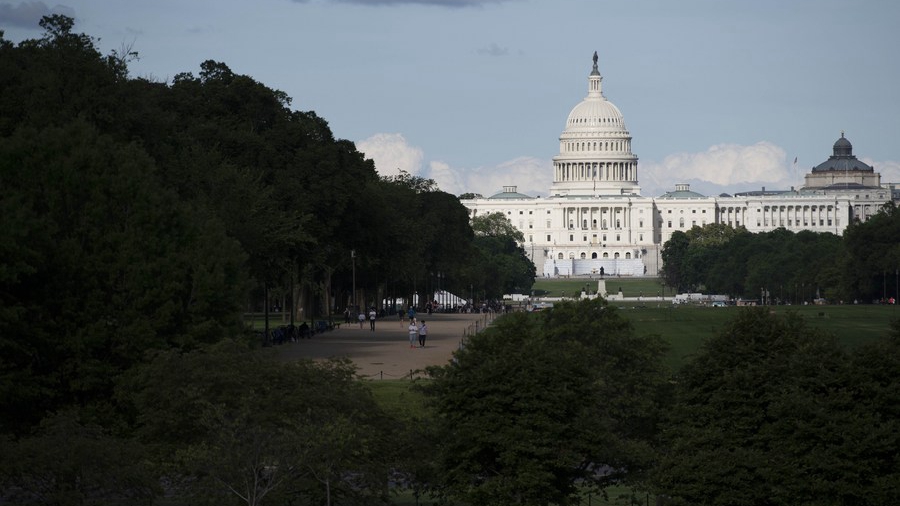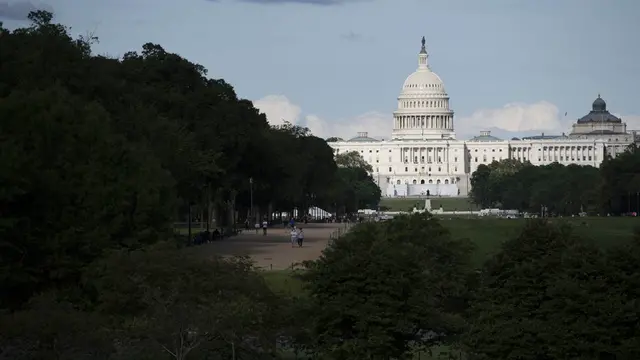
The U.S. Capitol building in Washington, D.C. May 27, 2020. /Xinhua
**Editor's note: **The following article is taken from the Chinese-language opinion column "The Real Point."
According to reports from the U.S. media, an internal document of the U.S. Centers for Disease Control and Prevention (CDC) shows that the White House has instructed the CDC Media Relations Department to refuse any interview request with anyone related to Voice of America (VOA).
VOA's director and deputy director have announced their resignations. This is generally considered to be another "revenge" action by the U.S. government against its mouthpiece after publicly condemning VOA's act to "speak for authoritarian regimes" in April.
VOA, as a government-funded media outlet, is known as an anti-China broadcaster. Why is the U.S. government still not satisfied with VOA?
It begins with a VOA report in early April saying that the lockdown in Wuhan demonstrated a successful model for controlling and preventing COVID-19. The White House was furious about the report, accusing it of using American taxpayers' money for Chinese propaganda. A fair report caused a stir in the White House, exposing the hypocrisy of U.S. freedom of speech.
In fact, VOA is only one of the media organizations attacked and suppressed by the U.S. government during the pandemic. NBC, CNN, New York Times and even Fox News are often lashed out at by American officials for objective remarks on China's fight against the pandemic.
Some Western media are accustomed to seeing China through "tinted glasses." When they tell some truth, for example, about China's fight against COVID-19, some U.S. politicians then worry that Americans will compare it with the botched response of the U.S. government. For the White House, only criticizing China is "reporting the facts" and is able to reduce pressure for itself.
American politicians also attempt to strengthen social media censorship through executive orders, and turn it into a tool for serving political interests. Twitter recently announced the closure of more than 170,000 accounts, saying they were "spreading geopolitical narratives favorable to the Communist Party of China."
Ironically, a research report released by an Australian institute shows that since the end of March 2020, a group of organized paid posters has used robot accounts to distribute the conspiracy theory that the novel coronavirus is a biological and chemical weapon made by the Chinese government, and many of the users who forwarded the rumor are U.S. Republicans and right-wing supporters. Twitter has not responded to this.
On the one hand, pages that gave objective accounts of China's anti-epidemic performance were blocked, and on the other hand, the robot accounts were spreading rumors openly.
Edward Carr, a British international relations scholar, said 80 years ago likened the United States to "masters in the art of concealing their selfish national interests in the guise of the general good." Some American politicians have ripped off the disguise so that the world sees clearly that the U.S. can discard at any time "freedom of speech," "democracy" and "human rights" provided that such a move serves its interests.
(If you want to contribute and have specific expertise, please contact us at [email protected].)
 简体中文
简体中文





